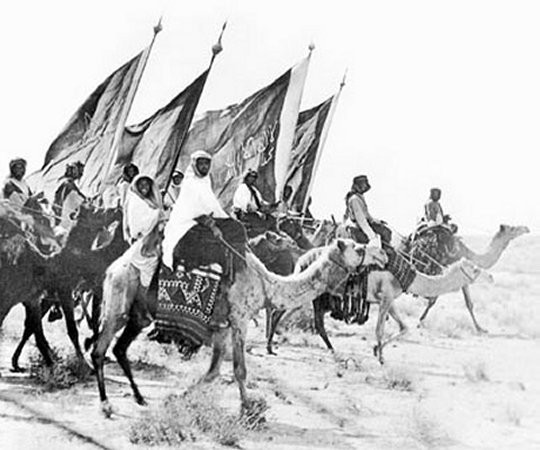As the new war on ISIS widens, and the media war drums pick up the tempo, some nice breaks in the rhythm have been the few peeps made about the role of the U.S. and its allies (especially Saudi Arabia) in feeding the beast, by arming and training ISIS’s fellow travelers and prospective members in Syria.
Yet, this is no new phenomenon. Less-than-pious rulers (especially American presidents and decadent Saudi royals) have cynically harnessed radical Islam to fuel their worldly wars of conquest and dominance for centuries. And they have done so with the indispensable help of radical Islamic scholars, clerics, and preachers who formulate and communicate the doctrines that underpin that fanaticism.
This partnership is the most ancient variety of a more universal one: what Murray Rothbard called, “the State’s age-old alliance with the Court Intellectuals who weave the apologia for State rule.” Rothbard wrote:
“…since the early origins of the State, its rulers have always turned, as a necessary bolster to their rule, to an alliance with society’s class of intellectuals. (…) The alliance is based on a quid pro quo: on the one hand, the intellectuals spread among the masses the idea that the State and its rulers are wise, good, sometimes divine, and at the very least inevitable and better than any conceivable alternatives. In return for this panoply of ideology, the State incorporates the intellectuals as part of the ruling elite, granting them power, status, prestige, and material security.(…)
Before the modern era, particularly potent among the intellectual handmaidens of the State was the priestly caste, cementing the powerful and terrible alliance of warrior chief and medicine man, of Throne and Altar. The State “established” the Church and conferred upon it power, prestige, and wealth extracted from its subjects. In return, the Church anointed the State with divine sanction and inculcated this sanction into the populace.”
The ideological roots of ISIS, Al Qaeda, and the current wave of Islamic fanaticism in general can be traced back to the 18th century, to one particular, “terrible alliance of warrior chief and medicine man, of Throne and Altar,” that serves as a textbook illustration of the explosive power of this kind of partnership. Continue reading “Playing with Fanatic Fire: How the Saudis (and the U.S.) have perilously exploited radical Islam in their pursuit of power”




